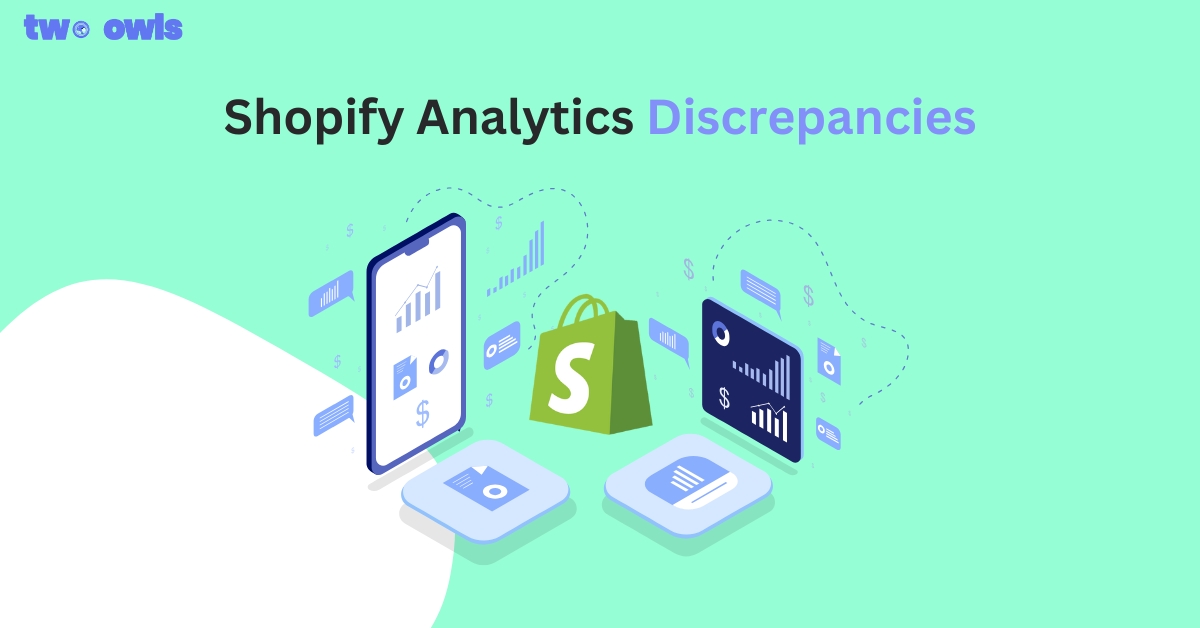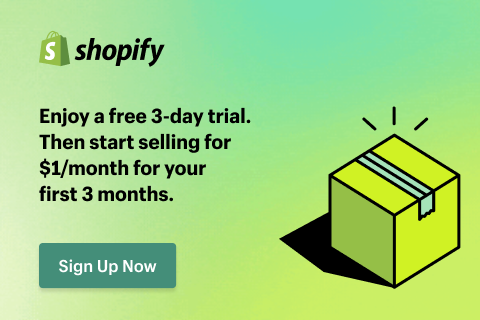Facebook Standard Events Vs Custom Conversion: What Do You Need In 2026?
Are you using Facebook for advertising your business? If so, you might have come across the terms "Facebook standard events" and "Facebook custom conversion". These are two powerful tools that can help you track user interactions on your website or app, and optimize your ad campaigns accordingly.
In this article, we will explore the differences between Facebook standard events and custom conversions, and help you determine which one is right for your advertising needs.
What are Facebook events & custom conversions?
Before we dive into the details of Facebook standard events and custom conversions, let's first understand what these terms mean.
Facebook Events
Facebook pixel events are a set of pre-defined actions that users can take on your website or app. These actions can include making a purchase, adding a product to the cart, completing a registration form, or viewing a specific page.
By tracking these events, you can gain valuable insights into user behavior and use this data to optimize your ad campaigns.
Here is a list of key Facebook standard events (meta standard events) and when to use them:
- PageView: Ideal for measuring overall traffic and engagement on your website.
- View Content: Use when you want to track specific content views, such as articles or product pages.
- Search: Appropriate for tracking user-initiated searches on your platform.
- AddToCart: Deploy when users add items to their shopping cart, indicating strong purchase intent.
- InitiateCheckout: Useful for tracking the initiation of the checkout process.
- Purchase event: Apply when users complete a purchase, signifying a conversion.
- Lead: Suitable for measuring sign-ups, registrations, or other lead-generation actions.
Understanding when to use each standard event is crucial for aligning your tracking strategy with specific campaign objectives and desired user actions.
Custom Events
In addition to the standard events provided by Facebook, you also have the option to create custom events. Custom events allow you to track actions that are specific to your business and not covered by the standard events.
For example, if you run a travel website, you might want to track when a user searches for flights to a particular destination. By creating a custom event for this action, you can gain insights into user behavior that is directly relevant to your business.
Custom Conversions
Custom conversions are another powerful tool provided by Facebook that allows you to track specific URLs or web pages as conversion events. With custom conversions, you can define the exact URL or URL patterns that you want to track as conversions.
For example, if you have a thank you page that users see after completing a purchase, you can create a custom conversion for that page and track how many users reach it. This data can then be used to optimize your ad campaigns for better performance.
Creating a custom conversion is a straightforward process. Here are the steps to follow:
- Go to the Facebook Events Manager and select "Custom Conversions" from the menu.
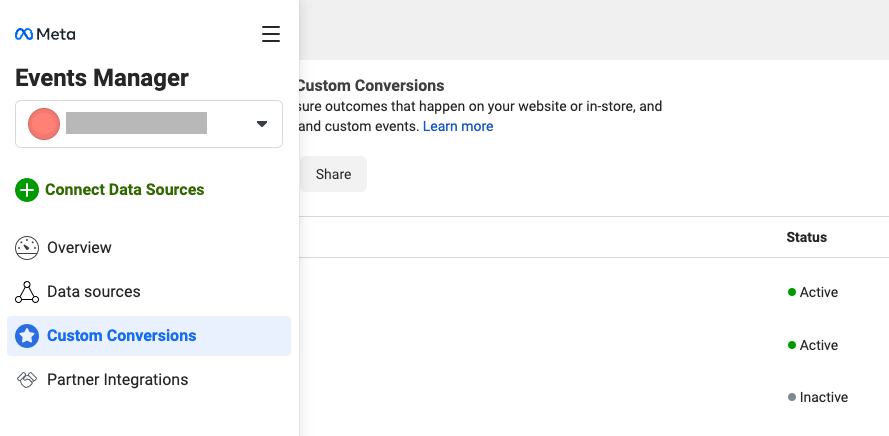
- Click on the "Create Custom Conversion" button.
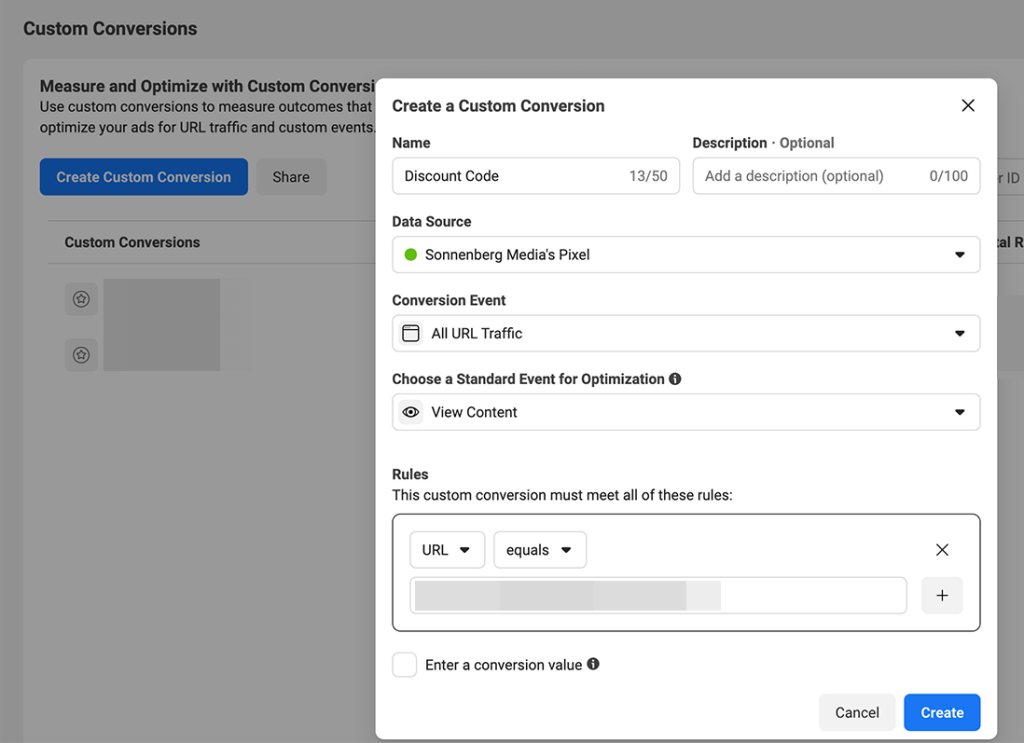
- Paste the URL or a part of it that signifies your custom conversion (e.g., URL contains /thankyou.php for post-purchase gratitude).
This mirrors the Make Purchase standard event. If you opt for URL Equals, be sure to encompass the domain (e.g., www). No need for "http" or "https"
- Give your custom conversion a name and choose a category that best describes it.
- Assign a conversion value if needed (e.g., $10 for tickets). This lets you track your return on ad spend in reports.
- Click on the "Create" button to save your custom conversion.
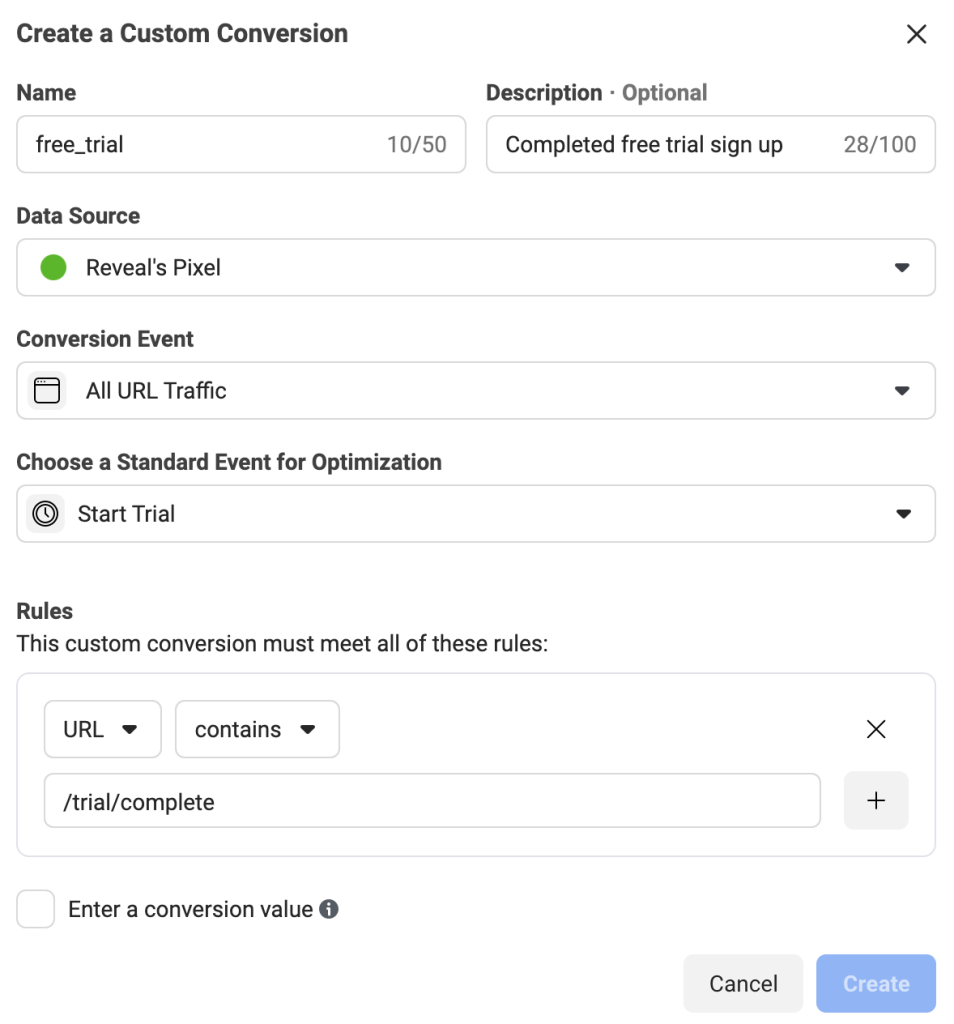
Once you have created a custom conversion, Facebook will start tracking the specified URL or URL pattern as a conversion event. You can then use this data to optimize your ad campaigns and improve your advertising results.
Notably, if in the event section, you select a standard one, rules can be set based on the parameters of that event as well. This method is also widely employed by large brands to target wealthier customers.
What are their differences?
Now that we have defined both Facebook standard events and custom conversions, let's take a closer look at their differences.

Standard events vs Custom conversions comparison.
How do Facebook events and custom conversions affect advertising?
Now that we understand the differences between Facebook events and custom conversions, let's explore how they can impact different aspects of your advertising strategy: targeting, optimization, and reporting.
Targeting
Absolutely! You've got the freedom to shape website custom audiences using standard and custom events. However, don't go fishing for website custom audiences with a custom conversion rod—that won't reel them in.
When we unfold the story of custom conversions, remember, it's not in the business of targeting audiences. It has a different role in this advertising saga.
Learn More: How to Create Facebook Custom Audiences for Better Targeting
Optimization
Custom conversions offer more advanced options for optimization compared to Facebook standard events. With custom conversions, you can optimize your campaigns for specific actions that are important to your business.
For example, if your goal is to increase sign-ups for a webinar, you can optimize your campaign for the custom conversion event associated with webinar sign-ups.
Facebook standard events, on the other hand, provide limited optimization options. While you can optimize your campaigns based on standard events on Facebook like "Purchase" or "Add to Cart," you may not have the same level of control and specificity as with custom conversions.
Reporting
Custom conversions provide more detailed insights compared to Facebook standard events for reporting. Custom conversions provide specific data on the actions you have defined as conversion events, allowing you to measure the success of your campaigns more accurately.
Facebook standard events, on the other hand, provide basic reporting on the standard events you have implemented. While this can give you a general overview of user interactions, it may not provide the same level of granularity as custom conversions.
Expert Advice: When to Use Each
When deciding between Facebook standard events and custom conversions, it's crucial to align your choice with your specific advertising goals and the depth of insights you need. Here's expert advice on when to use each:
Facebook Standard Events
- Use case: Standard events are ideal for businesses with straightforward tracking needs.
- E-commerce focus: If your primary objective is e-commerce and you're looking for a quick and efficient way to track common actions like purchases, adds to cart, and product views, standard events are the go-to choice.
- Adaptability: Standard events are designed for ease of use and are adaptable for businesses of various sizes.
Custom Conversions
- Use case: Opt for custom conversions when your business demands more granular tracking tailored to specific actions on your website.
- Precise tracking: Custom conversions allow you to define and track unique events that standard events might not cover. This is beneficial for businesses with distinct conversion actions that are crucial for success.
- Optimization precision: If your advertising strategy relies heavily on specific actions, like form submissions or page interactions, custom conversions offer the precision needed for effective optimization.
Custom Events
- Use case: Choose custom events when your tracking requirements extend beyond standard events but fall short of the comprehensive scope of custom conversions.
- Intermediate-level tracking: If you need more than standard events but find custom conversions too intricate for your current needs, custom events strike a balance. They allow customization without the complexity of the entire custom conversion setup.
- Event grouping: Custom events are useful for grouping related actions that provide a nuanced understanding of user behavior without overwhelming complexity.
Here is an expert tip
Consider your current business scale and the immediate goals of your advertising campaign. If you're starting and need quick insights, fb standard events are efficient. As your business grows and demands more precise tracking, gradually transition to custom events and conversions for a tailored approach.
Regularly evaluate and adjust your tracking strategy based on evolving business needs and advertising objectives.
Deduplication in Facebook Pixel: How to Fix Duplicate Events and Track Data Correctly
Omega TikTok Pixels Now Speaks Your Language: Introducing Multi-Language Support
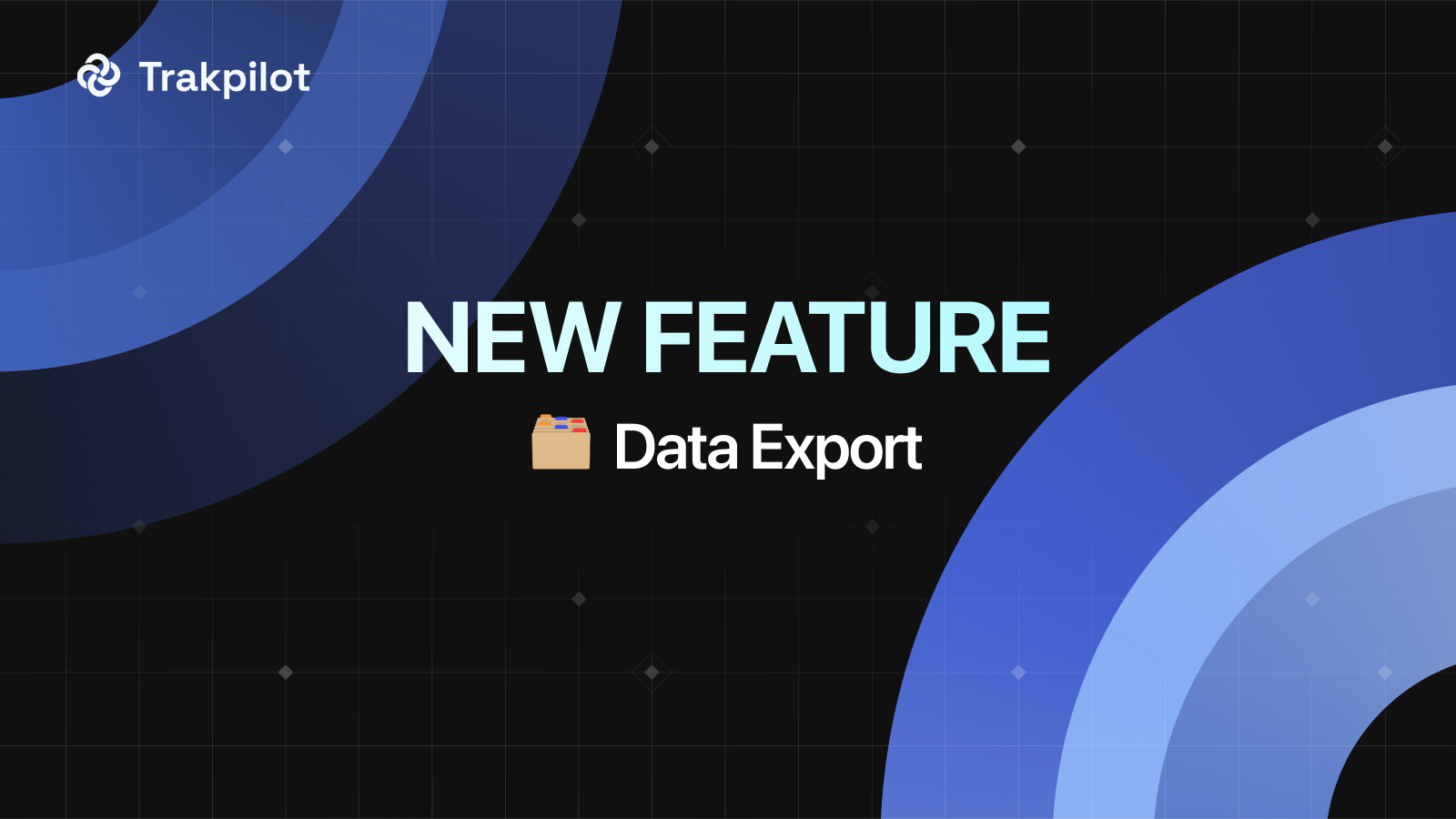
Trakpilot New Feature: Export Your Conversion Events Data
